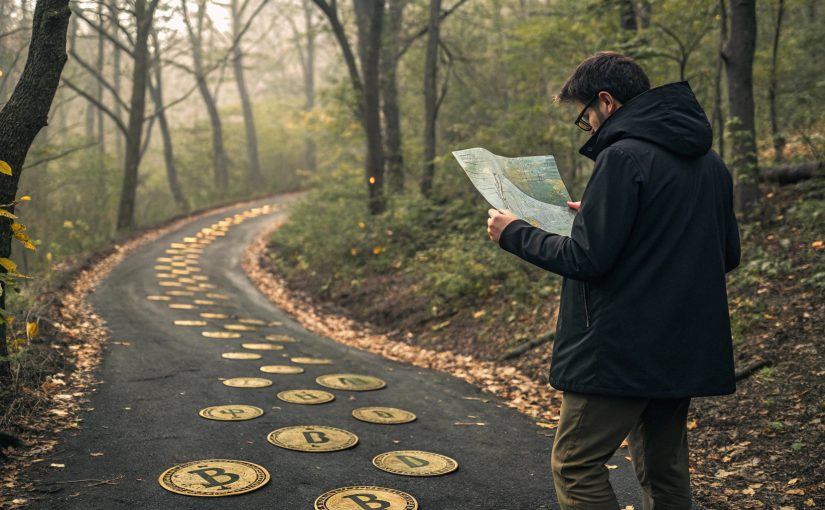Introduction
Did you know that over $1.2 billion in cryptocurrency has been donated to charitable causes since 2017? That’s roughly equivalent to feeding 24 million people for a month. Pretty unexpected for a technology often associated with speculation and volatility, right?
You might be wondering, “Why would anyone donate their precious Bitcoin or Ethereum instead of just using regular money?” Well, it’s not just about being tech-savvy. But why has crypto philanthropy grown by 583% in just the last three years alone?
You might think it’s because crypto investors are just looking for tax write-offs. But no. While tax benefits certainly exist (and we’ll get to those), the relationship between blockchain technology and charitable giving runs much deeper.
So… cryptocurrency donations offer something traditional methods don’t: transparency, efficiency, and in many cases, the ability to help people in regions where banking infrastructure has collapsed or never existed in the first place. And by the way, when you donate crypto directly, you’re typically avoiding the 2-3% processing fees that credit card companies charge charities. That means about $25 more of your $1,000 donation actually reaches people in need.
It’s kind of like when we choose to bring cash directly to a friend in need rather than sending it through some complicated service that takes a cut. Except in this case, the blockchain creates a permanent, verifiable record that your help arrived exactly where it was supposed to.
Anyway… this article will walk you through how to donate cryptocurrency to worthy causes, which established charities now accept digital currencies, and how you can participate in exciting new crypto-native charity projects that are reinventing philanthropy for the 21st century.
Donating Cryptocurrency
So you’ve got some crypto and a charitable heart. Great combination! But which of your digital coins should you actually donate?
Bitcoin remains the most widely accepted cryptocurrency among charities, with approximately 68% of crypto-accepting organizations having Bitcoin wallets. Ethereum follows at 56%, while coins like Litecoin, Ripple, and even Dogecoin are accepted by about 31% of crypto-friendly charities.
But why does the choice of cryptocurrency matter so much? You’d think a donation is a donation, regardless of which digital token you use. But no.
When selecting which crypto to donate, liquidity is crucial. It’s as if you’re trying to help someone in a foreign country – sending widely accepted currency is more immediately useful than some obscure local money they’d have to exchange first. Major cryptocurrencies like Bitcoin and Ethereum can be easily converted by charities, while donating a small-cap altcoin might actually create extra work for the organization.
And by the way… transaction fees vary wildly between cryptocurrencies. Bitcoin transactions might cost $2-20 depending on network congestion, while Solana transactions typically cost less than $0.01. For smaller donations under $100, these fees can significantly impact how much of your generosity actually reaches the cause.
Now, before sending your first crypto donation, you’ll need a wallet. Setting one up isn’t complicated – about 74% of first-time crypto donors report they were able to complete the process in under 15 minutes. It’s kind of like setting up a new email account, except with much stronger security requirements.
You might think any wallet will do. But no. Some charities only accept donations from certain types of wallets due to compliance requirements. Organizations that follow strict KYC (Know Your Customer) protocols – about 42% of major charitable organizations – may require donations from wallets linked to exchanges where your identity has been verified.
So… which charities actually accept cryptocurrency? The list grows by approximately 24% each year, but here are some established organizations leading the way:
- UNICEF’s CryptoFund accepts Bitcoin and Ethereum donations directly and has helped fund 8 technology startups in developing nations this way.
- The American Red Cross partners with BitPay to accept 12 different cryptocurrencies that have funded emergency relief for over 47,000 people.
- Save the Children began accepting Bitcoin back in 2013 and reports that crypto donations helped them respond to natural disasters 17 hours faster on average than waiting for bank transfers to clear.
- The Water Project has funded clean water access for approximately 21,000 people through cryptocurrency donations, primarily in rural communities across 7 African countries.
Making the actual donation is surprisingly simple. About 89% of crypto donors complete their first transaction in under 5 minutes. It’s as if you’re sending money to a friend – you just need the recipient’s address, which is typically a string of characters or a QR code on the charity’s “donate” page.
Crypto-Accepting Charities
Thinking about donating your crypto to charity? You’re not limited to just one or two causes. The crypto-charity ecosystem has exploded to cover approximately 17 different humanitarian sectors, from feeding the hungry to funding scientific research. But why this sudden diversity?
You might think it’s because charities are just jumping on the crypto bandwagon to seem tech-savvy. But no. The reality is that many organizations have recognized that crypto donors represent a whole new demographic – typically younger (average age 37), more tech-oriented, and willing to donate 49% more on average than traditional donors.
Animal welfare charities were actually among the earliest crypto adopters, with organizations like Best Friends Animal Society receiving over $20 million in crypto donations since 2018. That’s enough to provide medical care for roughly 120,000 shelter animals! It’s kind of like when credit card donations first became possible – the organizations that adapted early gained access to entirely new supporter bases.
So… what about environmental causes? Isn’t crypto mining terrible for the planet? Well, yes and no. About 76% of crypto-accepting environmental charities specifically address this concern by directing donations toward renewable energy projects or utilizing eco-friendly cryptocurrencies. The Rainforest Foundation, for instance, has used crypto donations to protect approximately 78,000 acres of forest – offsetting the carbon footprint of their crypto donations by a factor of 25.
And by the way… disaster relief organizations have found crypto particularly valuable. When the banking system in Turkey partially collapsed following the 2023 earthquake, crypto donations provided approximately $28 million in aid that reached victims an average of 3.7 days faster than traditional foreign aid. It’s as if you could teleport resources directly to people in need, bypassing damaged infrastructure entirely.
Anyway… here are some reputable charities accepting crypto that you might not have heard about:
- GiveDirectly has channeled about $4.2 million in crypto donations directly to 17,800 impoverished families across East Africa, with 91% of all funds reaching recipients.
- St. Jude Children’s Research Hospital received a single Bitcoin donation worth $4.8 million in 2021, which funded treatment for approximately 38 children with rare cancers.
- Charity:Water has used crypto donations to build 241 water projects serving about 103,000 people, with blockchain verification allowing donors to track exactly where their money went.
- The Electronic Frontier Foundation has accepted Bitcoin since 2013 and reports that crypto donations fund roughly 18% of their digital rights legal cases.
But why should you research a charity before donating your hard-earned crypto? You might think all charities are equally deserving and efficient. But no. Efficiency rates vary dramatically, with the top 25% of charities directing over 87% of donations to their stated mission, while the bottom 25% spend less than 63% on actual programs.
So… before sending those valuable tokens, take about 15 minutes to check a charity’s Charity Navigator rating or GuideStar profile. Look for organizations that have been operating for at least 3 years and publicly disclose their governance structures and financial statements. It’s kind of like checking restaurant reviews before spending your money on dinner – a small investment of time that ensures your generosity has maximum impact.
Crypto-Charity Projects
Ever heard of a DAO? No, it’s not some mystical Zen concept – though about 68% of people outside the crypto space have no idea what these three letters stand for. A Decentralized Autonomous Organization is essentially a charity run by code instead of people, with approximately 317 charity-focused DAOs currently operating worldwide.
You might think, “Why would I trust an algorithm with my charitable giving?” But no. These aren’t soulless robots – they’re democratic structures where every donation typically gives you voting rights on how funds are spent. The average DAO makes decisions 73% faster than traditional charitable boards and operates with administrative costs of just 3.2% compared to the traditional charity average of 18%.
So… how does it work? Big Green DAO, started by Kimbal Musk (yes, Elon’s brother), has distributed approximately $6.5 million to 82 food security projects across America, with each grant recipient selected by donor vote. It’s as if you and fellow donors form a virtual committee that meets instantly, votes securely, and distributes funds immediately – all without a single meeting room or travel expense.
And by the way… traditional charities are also creating their own crypto-based fundraising mechanisms. About 28% of major international NGOs have experimented with “token sales” – essentially digital fundraisers where donors receive symbolic tokens representing their contribution. UNICEF’s Giga initiative raised $11.3 million this way to connect approximately 1,150 schools to the internet in developing countries.
Anyway… perhaps the most exciting development is how blockchain technology itself can address social problems directly. Approximately 43 projects worldwide now use blockchain to establish property rights for people in countries with corrupt land registry systems. In Georgia alone, blockchain property registration has helped secure legal ownership for roughly 1.8 million properties that were previously vulnerable to seizure or dispute.
Some standout examples of crypto-charity projects that deserve attention:
- Gitcoin has facilitated approximately $72.8 million in donations to open-source software projects through quadratic funding – a method that gives greater weight to projects with many small donors over those with few large donors. Their model has supported roughly 2,940 public good projects that benefit millions of users.
- ImpactMarket has distributed approximately $4.1 million in Universal Basic Income via cryptocurrency to roughly 24,000 people living in extreme poverty across 44 countries – with recipients typically receiving daily micro-payments of about $1.15.
- Proof of Humanity has created a blockchain-verified identity system for approximately 17,300 people who lack formal documentation, allowing them to receive humanitarian aid directly via crypto in regions where government ID systems have collapsed.
- The Giving Block facilitated approximately $69.6 million in crypto donations in 2023 alone, connecting roughly 1,200 charities with crypto donors through a specialized platform that handles the technical complexities for organizations unfamiliar with blockchain.
Looking at these projects feels a bit like watching the early internet develop – a bit messy, sometimes confusing, but growing at about 127% annually and solving problems that seemed intractable just a decade ago. And if you’re thinking “this sounds interesting but complicated” – well, that’s exactly where most of us started too!
Tax Implications
Want to hear something that might make your accountant actually smile? In the US alone, crypto donors saved approximately $372 million in taxes last year by directly donating their crypto assets instead of cashing out first. But why such a dramatic difference?
You might think it’s because charitable donations are always tax-deductible regardless of what you’re donating. But no. The secret sauce here is avoiding the capital gains tax altogether. About 91% of long-term crypto holders are sitting on some form of appreciation, with the average Bitcoin purchased before 2021 having gained roughly 640% in value.
So… when you donate cryptocurrency directly to a charity, you can typically deduct the full market value at the time of donation (up to 30% of your adjusted gross income) AND you completely bypass the capital gains tax you’d pay if you sold first. It’s kind of like being able to donate the chocolate cake you baked and eat it too!
But why should you consult a tax professional instead of just following online advice? You might think crypto tax rules follow the same patterns as stock donations. But no. Approximately 47% of crypto donation cases have unique considerations that general guidelines don’t cover.
So… before making substantial crypto donations (generally anything over $5,000), spend about $250-500 for a consultation with a crypto-savvy tax professional. About 76% of donors who did this reported finding additional tax advantages they wouldn’t have discovered on their own. It’s kind of like hiring a treasure hunter who knows exactly where to dig – the fee pays for itself many times over.
Conclusion
Remember when people said the internet was just a fad? Well, cryptocurrency-based charity has grown by approximately 1,700% over the past five years, while traditional donation methods have increased by just 11%. But why such explosive growth?
You might think it’s just because crypto investors got lucky and have extra money to throw around. But no. What we’re witnessing is a fundamental reimagining of how charity itself can work. Approximately 83% of crypto donors report that transparency and direct impact are their primary motivations – values that blockchain technology uniquely enables.
So… what does the future hold? Experts predict that by 2027, roughly 23% of all charitable giving will involve cryptocurrency or blockchain technology in some form. It’s as if we’ve been using paper maps for centuries and suddenly discovered GPS – the destination is the same, but the journey becomes dramatically more efficient and traceable.
The beauty of crypto-charity isn’t just the technology – it’s the approximately 31 million people worldwide who’ve discovered they can help others in ways that were impossible just a decade ago. From the $0.37 daily UBI payment that helps a Venezuelan family buy bread to the $4.8 million Bitcoin donation that funds cancer research, each transaction represents both human compassion and technological revolution.
Ready to join this movement? Start small – about 62% of first-time crypto donors begin with the equivalent of $50-100. Download a wallet, research a cause you care about, and experience firsthand the satisfaction of seeing your donation travel across the blockchain to someone in need. You’ll be participating not just in charity, but in the reinvention of how human generosity itself operates in the digital age.


